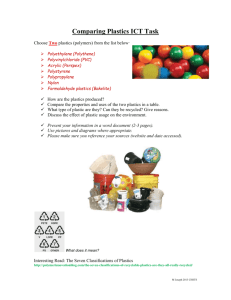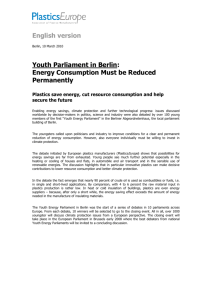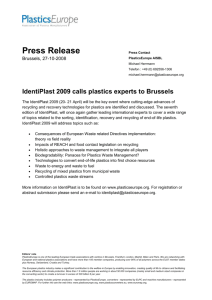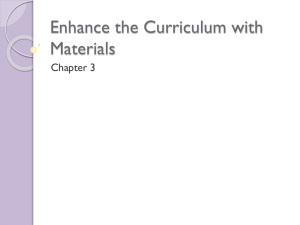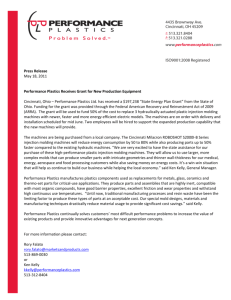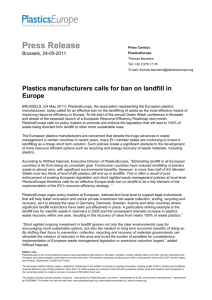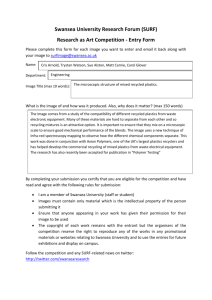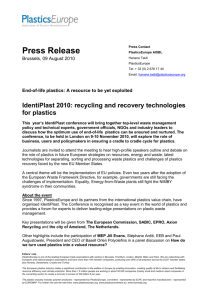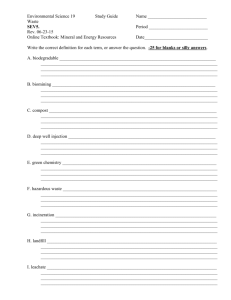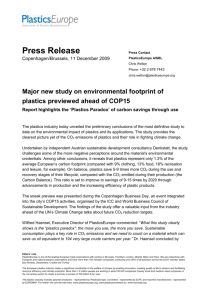Plastics can contribute to saving energy and
advertisement
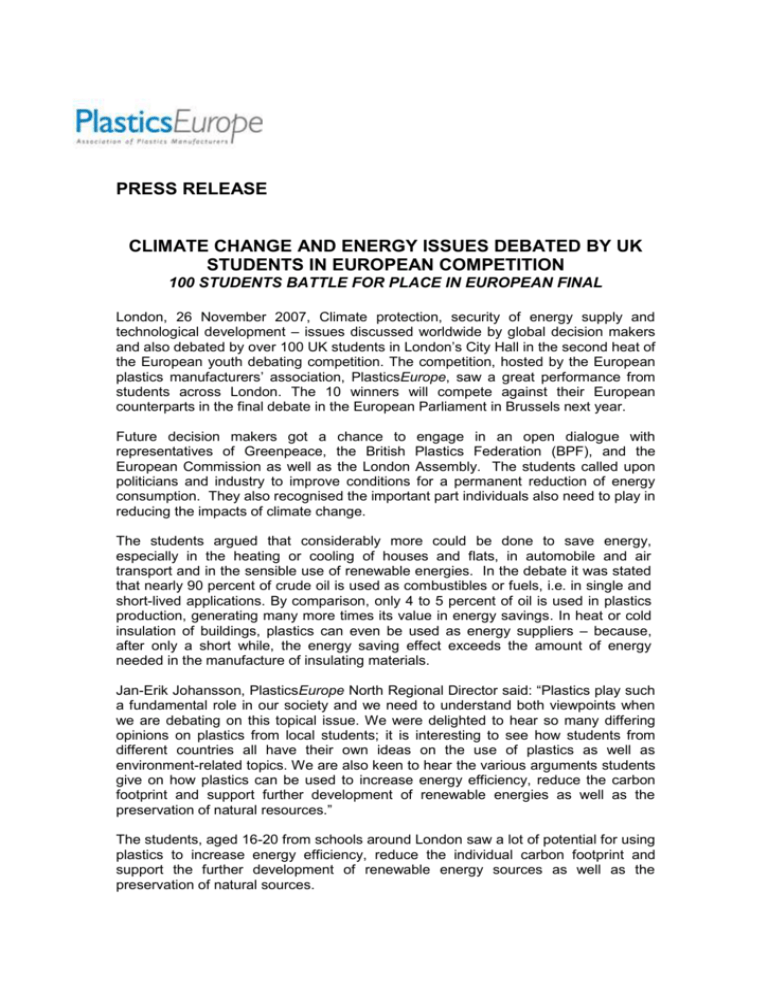
PRESS RELEASE CLIMATE CHANGE AND ENERGY ISSUES DEBATED BY UK STUDENTS IN EUROPEAN COMPETITION 100 STUDENTS BATTLE FOR PLACE IN EUROPEAN FINAL London, 26 November 2007, Climate protection, security of energy supply and technological development – issues discussed worldwide by global decision makers and also debated by over 100 UK students in London’s City Hall in the second heat of the European youth debating competition. The competition, hosted by the European plastics manufacturers’ association, PlasticsEurope, saw a great performance from students across London. The 10 winners will compete against their European counterparts in the final debate in the European Parliament in Brussels next year. Future decision makers got a chance to engage in an open dialogue with representatives of Greenpeace, the British Plastics Federation (BPF), and the European Commission as well as the London Assembly. The students called upon politicians and industry to improve conditions for a permanent reduction of energy consumption. They also recognised the important part individuals also need to play in reducing the impacts of climate change. The students argued that considerably more could be done to save energy, especially in the heating or cooling of houses and flats, in automobile and air transport and in the sensible use of renewable energies. In the debate it was stated that nearly 90 percent of crude oil is used as combustibles or fuels, i.e. in single and short-lived applications. By comparison, only 4 to 5 percent of oil is used in plastics production, generating many more times its value in energy savings. In heat or cold insulation of buildings, plastics can even be used as energy suppliers – because, after only a short while, the energy saving effect exceeds the amount of energy needed in the manufacture of insulating materials. Jan-Erik Johansson, PlasticsEurope North Regional Director said: “Plastics play such a fundamental role in our society and we need to understand both viewpoints when we are debating on this topical issue. We were delighted to hear so many differing opinions on plastics from local students; it is interesting to see how students from different countries all have their own ideas on the use of plastics as well as environment-related topics. We are also keen to hear the various arguments students give on how plastics can be used to increase energy efficiency, reduce the carbon footprint and support further development of renewable energies as well as the preservation of natural resources.” The students, aged 16-20 from schools around London saw a lot of potential for using plastics to increase energy efficiency, reduce the individual carbon footprint and support the further development of renewable energy sources as well as the preservation of natural sources. The 10 winners were: Shade Henry, Blackheath High School Gioacchino Accurso, St Dominic’s Sixth Form College, Harrow Frederick Williams, The Latymer School, Edmonton Catherine Sargent, Hayes School, Bromley Tim Wyatt, The Latymer School, Edmonton Francesca Mendes, St Michael’s Catholic Grammar School, North Finchley Peter O’Conner, St Dominic’s Sixth Form College, Harrow Nasreeen Nazir, Woodhouse College, Finchley Steven Bush, Woodhouse College, Finchley Jennifer Quigley-Jones, St Michael’s Catholic Grammar School, North Finchley The winners of the debate will compete against their European counterparts in the final debate in the European Parliament in Brussels next year. --- ends --Media enquiries to: Stephanie Bailey 020 7413 3717 sbailey@hillandknowlton.com Notes to the editor: PlasticsEurope is one of the leading European trade associations with offices in Brussels, Frankfurt, London, Madrid, Milan and Paris. We are networking with European and national plastics associations and have more than 100 member companies, producing over 90% of all polymers across the 27 EU member states plus Norway, Switzerland, Croatia and Turkey. The European plastics industry makes a significant contribution to the welfare in Europe by enabling innovation, creating quality of life to citizens and facilitating resource and energy efficiency as well as climate protection. More than 1.6 million people are employed in about 50.000 companies (mainly small and medium sized enterprises in the converting sector) to create a turnover of €280 billion per year. The plastics industry includes polymer producers represented by PlasticsEurope, converters represented by EuPC and machine manufacturers represented by EUROMAP.
